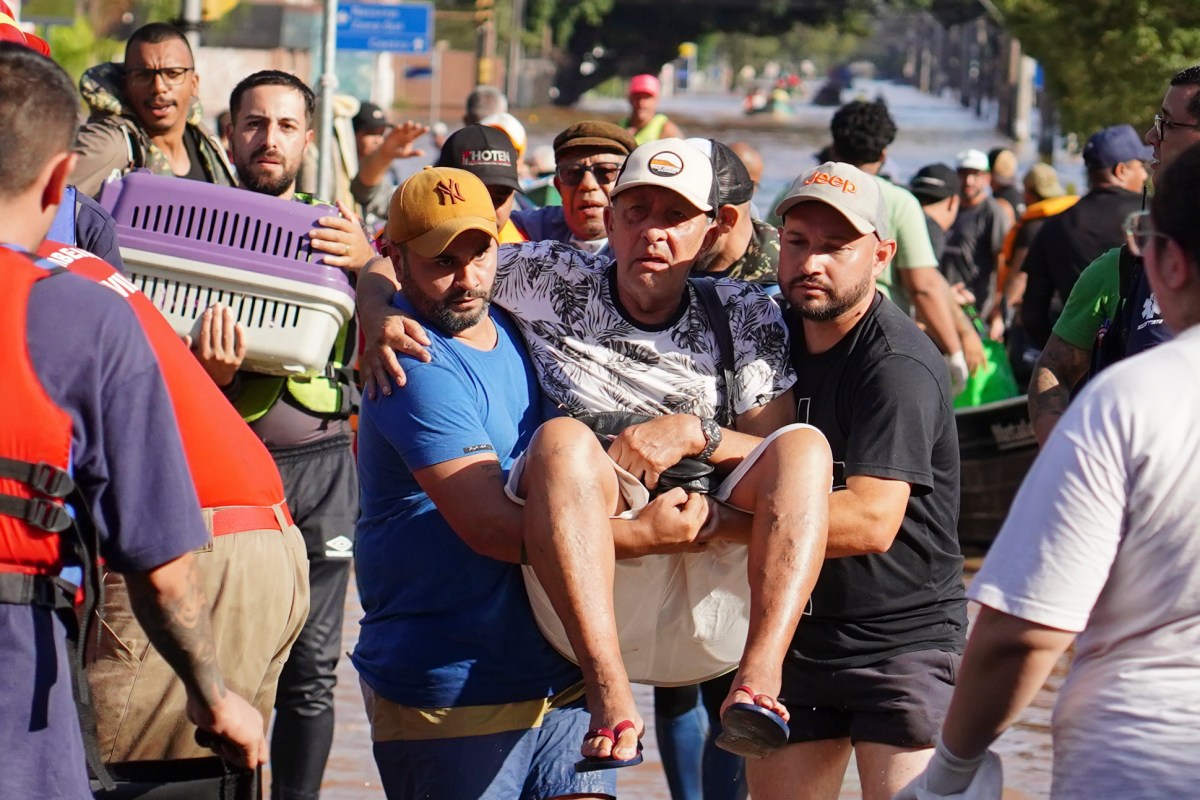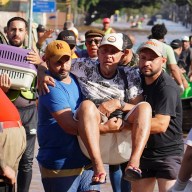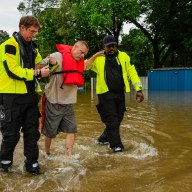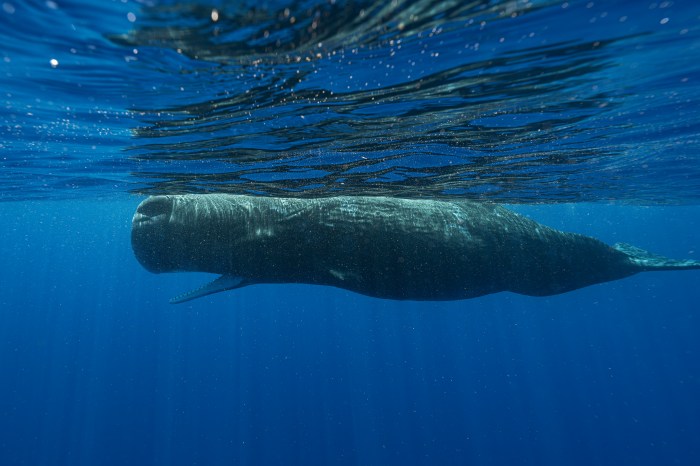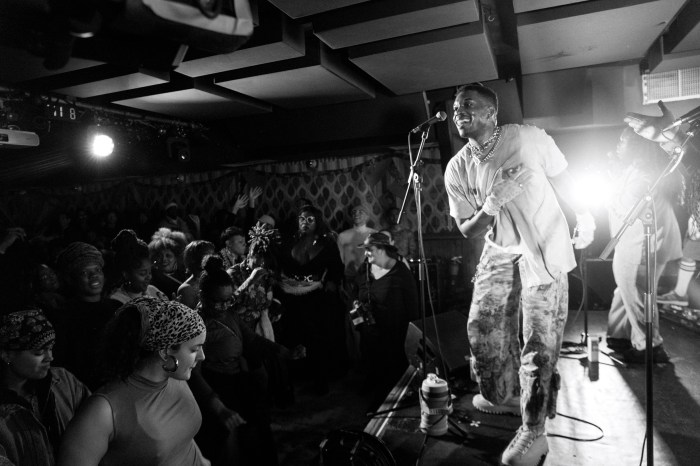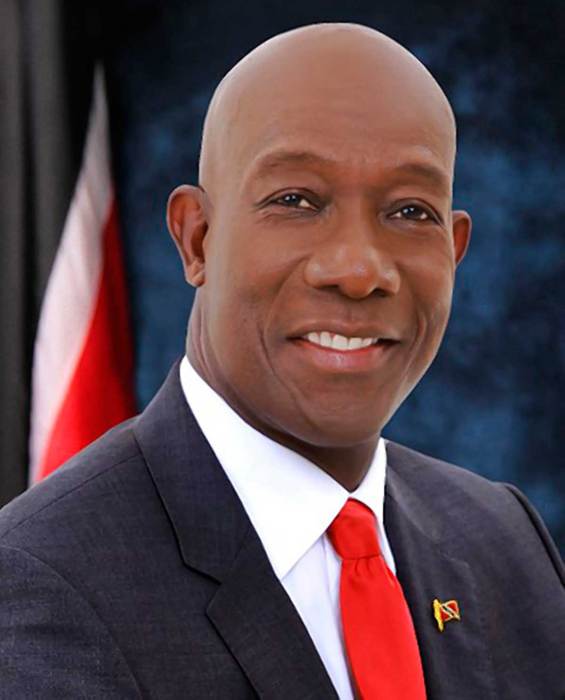PORTO ALEGRE, Brazil (AP) — The mayor of a major city in southern Brazil on Tuesday pleaded with residents to comply with his water rationing decree, given that some four-fifths of the population is without running water, a week after major flooding that has left at least 90 people dead and more than 130 others missing.
Efforts were continuing to rescue people stranded by the floods in the southern state of Rio Grande do Sul, as more rains were forecast for the region into next week. The capital, Porto Alegre, has been virtually cut off, with the airport and bus station closed and main roads blocked because of the floodwaters.
The floods in Brazil are among extreme weather events being seen around the world.
Yoga teacher Maria Vitória Jorge’s apartment building in downtown Porto Alegre is flooded, so she’s leaving it behind, having withdrawn about 8,000 reais ($1,600) from her savings to rent an apartment for herself and her parents elsewhere in the state.
“I can’t shower at home, wash the dishes or even have drinkable water,” the 35-year-old Jorge said in her car as she prepared to travel. She had just a gallon of water for the 200-kilometer (125-mile) drive to the city of Torres, so far unaffected by the floods.
Five of the Porto Alegre’s six water treatment facilities aren’t working, and Porto Alegre Mayor Sebastião Melo on Monday decreed that water be used exclusively for “essential consumption.”
“We are living an unprecedented natural disaster and everyone needs to help,” Melo told journalists. “I am getting water trucks to soccer fields and people will have to go there to get their water in bottles. I cannot get them to go home to home.”
The most urgent need is drinking water, but food and personal hygiene products are also in short supply. Other Brazilian states are mobilizing trucks with donations bound for Rio Grande do Sul.
There were long lines and empty shelves at supermarkets in Porto Alegre on Tuesday. Some people have tried to buy bottled water since the weekend, and when they could find it, their purchases were limited to two five-liter (1.3-gallon) bottles.
Public health experts say there is also growing risk of disease as much of the region remains submerged, warning that cases of dengue fever and leptospirosis, a bacterial disease, in particular could rise sharply within days.
Adriano Hueck on Tuesday was attempting to retrieve medicine stocked at a friend’s warehouse, which is partially flooded.
“If we can save some of it, there’s still a chance it can be useful in hospitals,” said 53-year-old Hueck, who then pointed toward another part of the city. “My house is somewhere there. You can’t even see its roof now.”
Like Jorge, the yoga teacher, residents in Rio Grande do Sul who are able to flee are doing so, amid fears of shortage and disease. However, it’s difficult for many to leave Porto Alegre with main access roads blocked by floodwaters. The city’s airport and main bus terminal are filled with water and closed for the foreseeable future.
Close to the airport, about 100 people of a nearby slum set up tents on the road, hoping to return to their shacks on small boats to try to save some of their belongings. Some roasted chunks of meat on improvised grills.
The downpour has stopped for now, but a looming cold front will bring more severe rain starting Tuesday night, mainly in the southern part of the state, according to the National Meteorological Institute. Rainfall could exceed 150 millimeters (nearly six inches) by early Wednesday.
Late Monday, Rio Grande do Sul Gov. Eduardo Leite issued an alert for several cities close to the huge Patos Lagoon. The floodwaters in Porto Alegre and other cities pass through the lagoon to the sea.
“The water level will rise and it will affect you,” he said in a video broadcast on his social media channels. “Please, believe the alerts and help us save lives. Let’s reduce the damage so we can be together to rebuild.”
Porto Alegre’s metropolitan region is one of Brazil’s largest, home to around 4 million people.
Damage from the rains has already forced more than 150,000 people from their homes. An additional 50,000 have taken refuge in schools, gymnasiums and other temporary shelters.
Brazilian President Luiz Inácio Lula da Silva visited Rio Grande do Sul for a second time on Sunday, accompanied by Defense Minister José Múcio, Finance Minister Fernando Haddad and Environment Minister Marina Silva, among others.
Authorities said Monday that they are concerned about the risks of hypothermia, as the temperature should drop to 10 C (50 F) on Wednesday. On Tuesday, Melo issued a plea for more donations of blankets.
And it isn’t just residents who are at risk.
“Our personnel has been wet for five days, shivering in the cold, staying up all night, in deficient sanitary conditions, because we’re sharing the same facilities with the displaced,” Gen. Hertz Pires do Nascimento, the army commander of Brazil’s southern region, told journalists.
During Mass at the Vatican on Sunday, Pope Francis said he was praying for the state’s population.
Security is another concern. Rio Grande do Sul’s public security secretariat said in a statement that police will beef up operations to prevent looting and theft. Brazil’s national guard is mobilizing to the state to reinforce security.
“Even a boat was stolen this morning from the people working on the rescue. Jet Skis and houses were looted. This is deplorable and must be denounced,” Paulo Pimenta, Lula’s spokesperson, said Tuesday at a news conference.
The flood disaster is also likely to affect the South American country’s food supplies. Rio Grande do Sul produces 70% of an basic Brazilian foodstuff: rice.
“With the rains, I think we’ve definitely delayed the harvest in Rio Grande do Sul. So, if needed to balance production, we’ll have to import rice, import beans,” Lula said in a radio interview at Brazil’s public broadcaster.
Pessoa reported from Sao Paulo.

